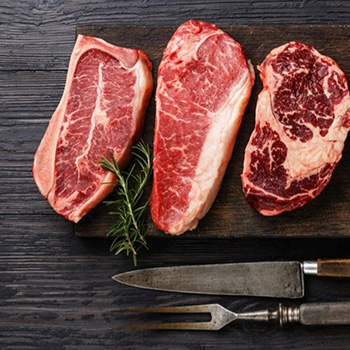Ask your doctor about a meat-only diet, and they might think you're off your rocker. I was skeptical too, until my research and personal experiment proved otherwise.
Yes, you can live on just meat—take the Inuit, thriving on whale and fish, no veggies in sight. Early on, the right supplements might iron out any issues with such a diet.
But let's not skirt around the elephant in the room: many folks reckon a carnivore diet is bonkers, and it's crucial to understand why.
Quick Summary
- The beef-only diet eliminates most carbs and is considered feasible, drawing comparisons to traditional diets like the Inuit's.
- Critics argue it lacks essential nutrients, but supporters suggest supplements can support gut health on this diet.
-
What Are The Common Objections To A Meat-Only Diet?

One common objection to a meat-only diet is the concern that it may lack essential nutrients and lead to digestive deficiencies.
In a nutshell, zero-carb meat lacks some minerals and fiber, risking deficiencies in your gut biome and digestion.
Yet, the perks of fiber and such matter less if you're all about meat or low-carb eating.
Another concern highlighted by nutritionists is that eating diverse plant foods and fresh fruits has been shown to have a positive effect on blood glucose levels. This certainly is the case for people on a typical Western diet, according to a 2019 research study conducted by Toby Smithson from USN [2].
But it completely misses an important point.
You will pretty much eliminate most carbs on the carnivore diet, especially the highly refined ones you find in bread and sugar. These refined carbs are the biggest culprit when it comes to causing serious blood sugar spikes that, in the long term, can cause diabetes and heart disease [3].
I mentioned the fiber concern above as a general digestive concern, but some people also claim that a lack of fiber is linked to an increased risk of cancer.
Again, it should be pointed out that all the studies in this area have looked at a lack of fiber on average, a very carb-rich Western diet, and not at a high-protein and saturated fat diet like the ones recommended on the carnivore food-list.
Also Read: How to Restart Eating Meat?
What Are Some Prominent Proponents Saying?

Prominent proponents of the all-meat carnivore diet stress the need for more research while sharing their positive personal experiences with the diet.
Critics cite studies focusing on diets mixing high-carb veggies, meat, and refined carbs. Yet, no in-depth research explores the effects of a meat-only diet on weight loss.
Despite this, the all-meat carnivore diet's online buzz is undeniable, thanks to numerous positive testimonials [4].
However, Chris Watson, a health and nutrition expert and founder of the nutritional site Eat For Longer, advises a balanced diet with greens for essential nutrients. While surviving on just beef is feasible, a varied diet is crucial for optimal health.
One of these proponents is Jordan Peterson, the Canadian celebrity academic. In several interviews, he has highlighted explicitly that after years of weight and mental health struggles, it was a meat-only meal plan that solved his problems.
His daughter Mikhaila has also become a huge proponent of the diet and has created a business around advising people on different carnivore methods [5].
One of the more interesting proponents is Dave Asprey. While he says that this diet didn't entirely work for him to achieve weight loss, he does comment a lot about the positive effects that meat has on people's lives [6].
No matter which diet you follow, make sure you're eating organic, grass-fed meat to limit your exposure to bad fats, glyphosate, artificial hormones, and antibiotic residues — all of which can make you weak.
- Dave Asprey, Health and Diet Author
The one thing that Dave's research has shown is that people may be able to reduce feeding the bad gut bacteria that can cause all sorts of health issues.
Now, to make sure I report accurately, while Dave doesn't think the carnivore diet is a long-term solution, he does believe that regular cycles of low-calorie diets like the keto diet may have a positive impact on many physical and mental health issues. And that kind of matches up with my own experience with elimination diet methods.
References:
- https://www.health.harvard.edu/staying-healthy/whats-the-beef-with-red-meat
- https://health.usnews.com/health-news/blogs/eat-run/articles/can-eating-more-plant-based-foods-help-manage-diabetes
- https://www.webmd.com/diabetes/news/20071126/refined-carbohydrates-up-diabetes-risk
- https://www.ncbi.nlm.nih.gov/pmc/articles/PMC8684475/
- https://mikhailapeterson.com/
- https://blog.daveasprey.com/carnivore-diet-results/







